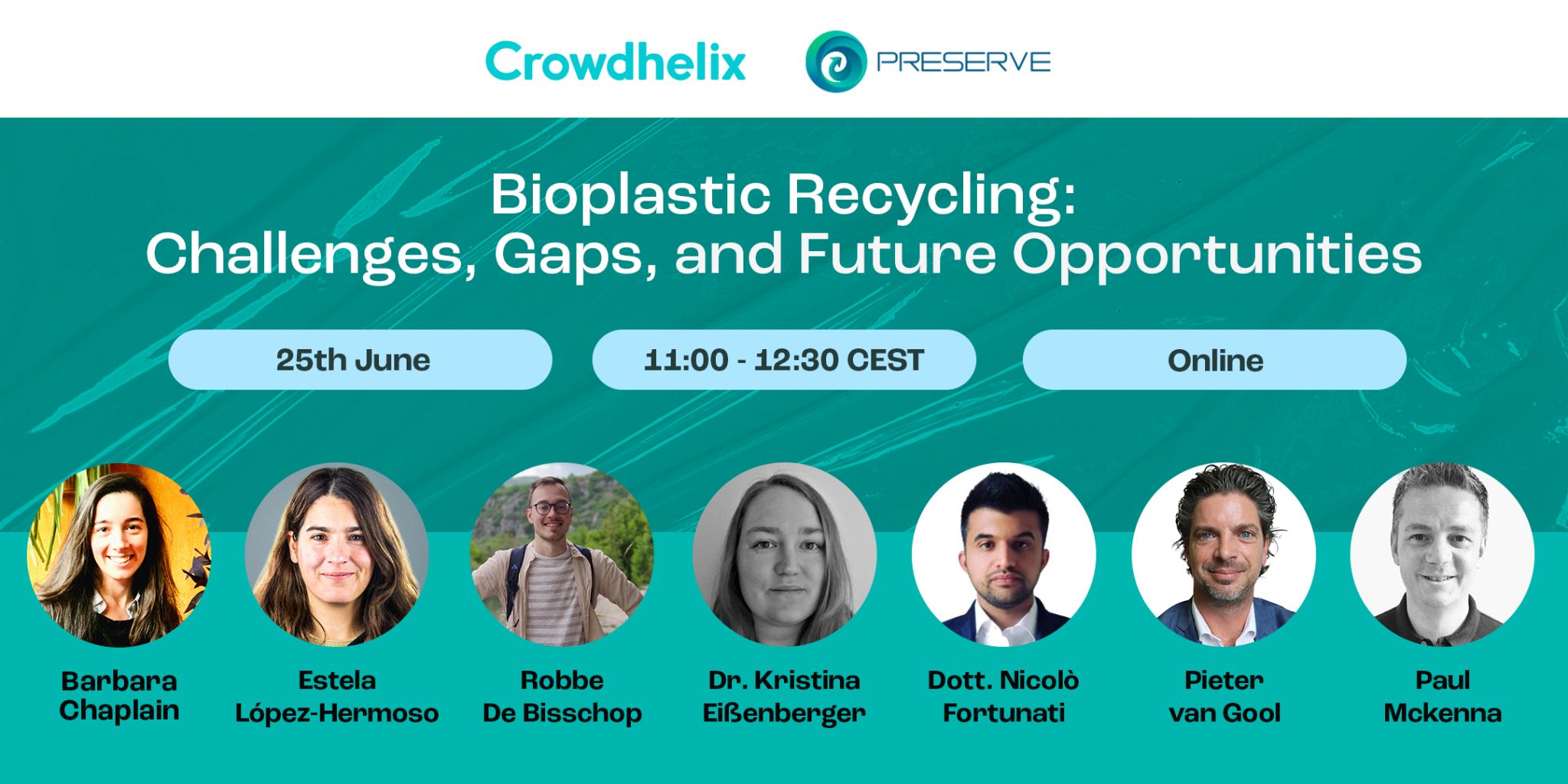
On June 25, 2024, a diverse group of industry leaders, researchers, and policymakers gathered for the event, “Bioplastic Recycling: Challenges, Gaps, and Future Opportunities.” Hosted by the PRESERVE project and organised by Crowdhelix, this event shone a spotlight on the promising potential of bioplastic recycling and the pathways to overcoming its challenges.
Recognising the need for proper recycling infrastructure, PRESERVE facilitated a forum where industry leaders, researchers, and policymakers presented contemporary challenges related to the transition to bioplastic and examined the extent to which they relate to gaps in recycling infrastructure.
The event, moderated by Pieter van Gool, Business Development Manager at SÜDPACK MEDICA, kicked off with the presentation by Dr. Kristina Eißenberger, Research Group Leader at Albstadt Sigmarinen Universiity (ASU) and PRESERVE´s Scientific coordinator, who provided an insightful introduction to the PRESERVE Project.
Dr. Nicolò Fortunati of Planet Bioplastics and Robbe DE BISSCHOP from Centexbel shared groundbreaking research on Bioplastic Recycling, more concretely on the delamination of multilayers for recycling and the potential of self- and micro-fibrillated technologies for mechanical reprocessing of biopolymers. These advancements promise to revolutionize how we handle bioplastic waste.
Estela López-Hermoso, EU Project Manager at European Bioplastics, provided an update on the PRESERVE co-design process for a PRESERVE roadmap to 2030 for sustainable biobased packaging and Werner Bosmans, from the European Commission’s DG Environment discussed the latest EU policies on biobased plastics and recycling. Following this, Barbara Chaplain from Cimpress, member of the PRESERVE Advisory Board, highlighted the industry challenges in transitioning to biobased plastics, providing a realistic view of the hurdles ahead.
Circular Plastic Helix‘s Paul Mckenna from Crowdhelix introduced the Circular Plastic Helix on the Crowdhelix Platform, emphasizing its role in impact acceleration and fostering future collaborations. This initiative is crucial for driving forward the circular economy.
Participants explored the environmental benefits of biobased packaging, with the PRESERVE project aiming to replace 60% of fossil plastic food and drink packaging by 2030. This transition promises significant sustainability and economic growth.
The outcomes of this event will feed the PRESERVE Roadmap 2030 and the PRESERVE policy recommendations due at the end of the project, in December 2024. The presentations of the event can be found on the PRESERVE Website and the recording on the PRESERVE YouTube channel.
A Glimpse into the PRESERVE Project
The PRESERVE project is focused on innovative development of biobased food packaging through enhanced bio-coatings to improve recyclability, while also ensuring these materials can be upcycled for a range of applications, including textiles and non-food utilisations. PRESERVE is developing a range of packaging items that are 100% based on renewable resources, promoting minimal environmental impact and encouraging recycling and a circular economy.
For more information about the PRESERVE project and its latest advancements, visit PRESERVE Project.

This project has received funding from the European Union’s Horizon 2020 research and innovation programme under grant agreement No 952983.